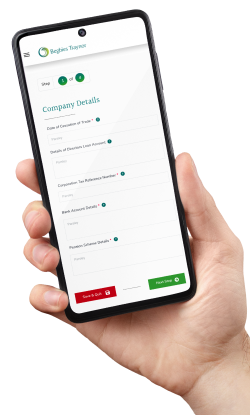Creditors’ Voluntary Liquidation, or CVL, is an official insolvency process that results in company closure. All assets are liquidated and the proceeds used to repay company debts as far as finances allow.
When a company is insolvent and has no hope of recovering, the process offers advantages to directors and creditors. But there are also some disadvantages to be aware of when entering a CVL.
So let’s look in more detail at the advantages and disadvantages of this process.
If you are a limited company director with concerns around cash flow and mounting debts, your company is likely to be insolvent and you must take advice from a licensed insolvency practitioner. We can provide free, confidential advice that explains all the options available. Call us on 0800 063 9262 or Find Your Nearest Office.
Directors have more control
Unlike compulsory liquidation, directors can take control of the process by choosing when to enter liquidation. They can also appoint their own choice of liquidator, whereas if they wait for a creditor to wind up the company, the Official Receiver takes control.
Potential to claim director redundancy
It’s relatively unknown that directors can claim redundancy pay on the liquidation of their company in some cases. If a director has worked as an employee for the company for at least two years, received a salary under PAYE, and worked a minimum of 16 hours per week in a practical rather than an advisory role, they may be able to claim the same statutory entitlements as member of staff.
Fulfilling director legal obligations
Under UK insolvency law directors are legally obliged to be aware of their company’s financial position at all times. By entering into voluntary insolvent liquidation they prove that this is the case and can limit creditor losses as well as their own reputational damage.
Liquidation Portal
For Company Directors

Debts written off
All unpaid debts are written off at the end of a Creditors’ Voluntary Liquidation, which means creditor pressure stops and directors can typically move on to other ventures without the burden of debt.
Allegations of wrongful trading are reduced
By making the decision to cease trading and place the company into voluntary liquidation, the directors are prioritising their creditors’ interests. This can mean there’s less chance of wrongful trading allegations following the liquidator’s investigation into how the company became insolvent.
The business is closed down efficiently
CVL is a formal process and must be administered by a licensed insolvency practitioner. This means the business is closed down in an orderly manner according to UK insolvency laws, and all statutory regulations are met.
Concerned about the National Insurance increase?
For the 2024-25 tax year, the rate of employer National Insurance increases from 13.8% to 15% adding yet more pressure onto already squeezed cash flows. If you are worried about the impact this could have on your company’s finances, talk to the experts at UK Liquidators. As licensed insolvency practitioners we can explain your options and help you plot a way forward. Call today on 0800 063 9262.
Closure of company
CVL results in the closure of the company, which is removed from the register at Companies House. It represents an unfortunate end to a business venture for directors, who may have put much time and effort into trying to make it a success.
Staff redundancies
Unfortunately, all staff are made redundant when a company enters Creditors’ Voluntary Liquidation. If the company is unable to make the required redundancy payments, which is often the case with insolvent liquidations, employees can make a claim from the National Insurance Fund (NIF).
Danger of personal guarantees
If directors have provided personal guarantees for any of the company’s borrowing, lenders will expect repayment according to the terms and conditions of the loan. This could place directors’ personal finances at risk - if they can’t pay, lenders will pursue them through the courts.
Start your online liquidation today
If you have decided liquidation is the right option for your limited company, you can take the first step and begin the process online using our online portal. Starting the process is quick, simple, and can be done at a time that suits you. Your information will be submitted to your local UK Liquidators insolvency practitioner who will be with you every step of the way. Click here to start your company’s liquidation online.
Public process
When a company enters Creditors’ Voluntary Liquidation, a public notice is placed in the Gazette. This can damage a director’s business reputation in some cases, although less so when compared with compulsory liquidation as the directors have placed creditor interests first.
If you would like more information on Creditors’ Voluntary Liquidation, and whether it’s the right procedure for your company, please contact our expert team at UK Liquidators to arrange a free same-day consultation. We’ll ensure you understand the process, including the advantages and disadvantages of a CVL, and work from a broad network of offices nationwide.
By completing the test, you will receive:
If you are considering liquidation for your company, taking expert advice at an early stage is crucial. At UK Liquidators, our team of licensed insolvency practitioners are committed to providing limited company directors with the help and advice they need to make an informed decision.




Looking for immediate support?
Complete the below to get in touch